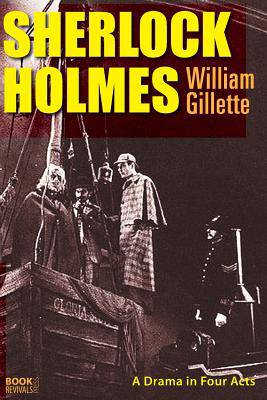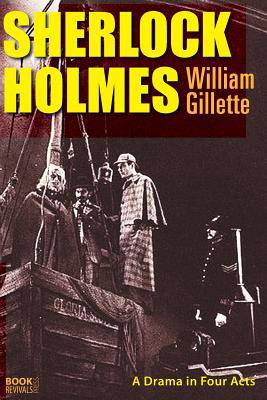
- Afhalen na 1 uur in een winkel met voorraad
- Gratis thuislevering in België vanaf € 30
- Ruim aanbod met 7 miljoen producten
- Afhalen na 1 uur in een winkel met voorraad
- Gratis thuislevering in België vanaf € 30
- Ruim aanbod met 7 miljoen producten
Zoeken
Omschrijving
Sherlock Holmes, a play that was revived many times after its first copyrighhtg performance in 1899, is the work of William Hooker Gillette, an American actor, playwright and stage-manager of the late nineteenth and early twentieth century who is still best remembered today as the personification of Sherlock Holmes on stage, a role he performed over 1,300 times, and reprised in a silent motion picture based on the play, and twice on radio. Gillette's particular contribution to the theater was in the areas of stage settings, special sound and lighting effects, and characterization. His portrayal of Holmes has influenced the modern image of the detective with his use of the deerstalker cap (which first appeared in some Strand illustrations by Sidney Paget) and the curved pipe that came to symbolize the character. Gillette was also well known for the famous line "This is elementary, my dear fellow!" which later became "Elementary, my dear Watson!", a phrase that however never appears in Doyle's books.
Specificaties
Betrokkenen
- Auteur(s):
- Uitgeverij:
Inhoud
- Aantal bladzijden:
- 126
- Taal:
- Engels
Eigenschappen
- Productcode (EAN):
- 9781387891672
- Verschijningsdatum:
- 18/06/2018
- Uitvoering:
- Paperback
- Formaat:
- Trade paperback (VS)
- Afmetingen:
- 152 mm x 229 mm
- Gewicht:
- 195 g

Alleen bij Standaard Boekhandel
+ 32 punten op je klantenkaart van Standaard Boekhandel
Beoordelingen
We publiceren alleen reviews die voldoen aan de voorwaarden voor reviews. Bekijk onze voorwaarden voor reviews.











